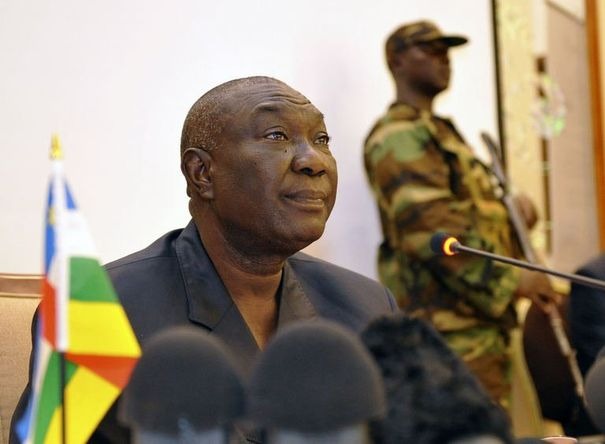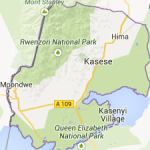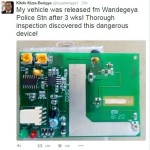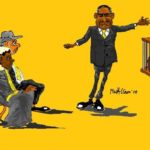Voting got off to a slow start Wednesday in key presidential and parliamentary elections in the Central African Republic, which people hope will usher in stability after years of sectarian bloodshed.
Snaking queues had formed outside polling stations in the capital Bangui by 0600 GMT, when voting was due to start, but many of them had yet to open two hours later.
Among the areas affected by the delays was the flashpoint PK-5 district of the capital Bangui, where ballot papers and voters’ lists had yet to arrive at some polling stations.
Despite the glitches, the enthusiasm of voters was undimmed.
“We will change the destiny of the country. But this time the will of the people must not be hijacked,” said a Philippe Bodo, a voter in Bangui’s second district.
The vote follows a referendum on constitutional change that was backed by 93 percent of voters, reflecting the popular desire for a return to normal life.
Three men are seen as front-runners in a race with 30 presidential candidates. All three are experienced politicians who have held senior government posts. One comes from the small Muslim minority.
UN chief Ban Ki-moon on Tuesday called for peaceful and credible elections, saying the fact that two million people had registered to vote was a “clear demonstration of the population’s engagement to exercise their democratic franchise.”
An 11,000-strong UN peacekeeping mission was working to boost security and prevent “any possible disruption to the election process,” he added.
Violence has grapped the mineral-rich but dirt-poor country since long-serving president Francois Bozize was ousted in March 2013 by a mainly Muslim rebel alliance, the Seleka, which installed Michel Djotodia, the first Muslim head of state of a mostly Christian country.
Djotodia quit in January 2014 after disbanding the Seleka, but attacks on Christians by rogue Muslim forces led to brutal reprisals against Muslim districts by “anti-balaka” (“anti-machete”) militias from Christian communities.
Thousands were slaughtered in a spiral of atrocities that drove about one in 10 of the population of 4.8 million to flee their homes, in a country that has been wracked by unrest since its 1960 independence from France.
Christians and Muslims alike came forward on a massive scale to ensure their names were on the electoral roll and collect their voters’ cards, many saying they never again wanted to hear gunfire or other manifestations of violence.
The vote, originally due to have been held on Sunday, was postponed by three days for logistical and security reasons.
Despite the presence of 11,000 UN and French peacekeepers, large chunks of the country remain out of bounds, either under the control of rebel chieftains or bandits.
At least 1,800 candidates are running for a place in the 105-seat National Assembly, but by the weekend, the National Elections Authority (ANE) had not cleared a valid final roster for the parliamentary polls.
Two of the three men leading the presidential race were prime ministers under late president Ange-Felix Patasse: Anicet Georges Dologuele and Martin Ziguele, who are both Christian.
The third, Abdoul Karim Meckassoua, is a Muslim. He served Bozize from 2003-13 in successive posts, including as foreign minister.
Up to the end of campaigning late Monday, candidates were handing out cash and T-shirts in Bangui and in remote provinces for those who could afford to use aircraft instead of navigating gutted roads.
The three previous presidents are barred from standing again: former Bangui mayor Catherine Samba Panza, who has overseen a political transition, as well as Bozize and Djotodia.
Bozize and Djotodia are both in exile and both face UN and US sanctions linked to the recent violence.
The Central African Republic’s own security forces — the army, the police and the paramilitary gendarmerie — have begun to patrol areas where tension remains high between ex-Seleka and anti-balaka elements.
National troops have also been deployed in the troubled PK-5 Muslim enclave in Bangui, where ex-Seleka hardliners killed five people for wanting to vote on referendum day.









1